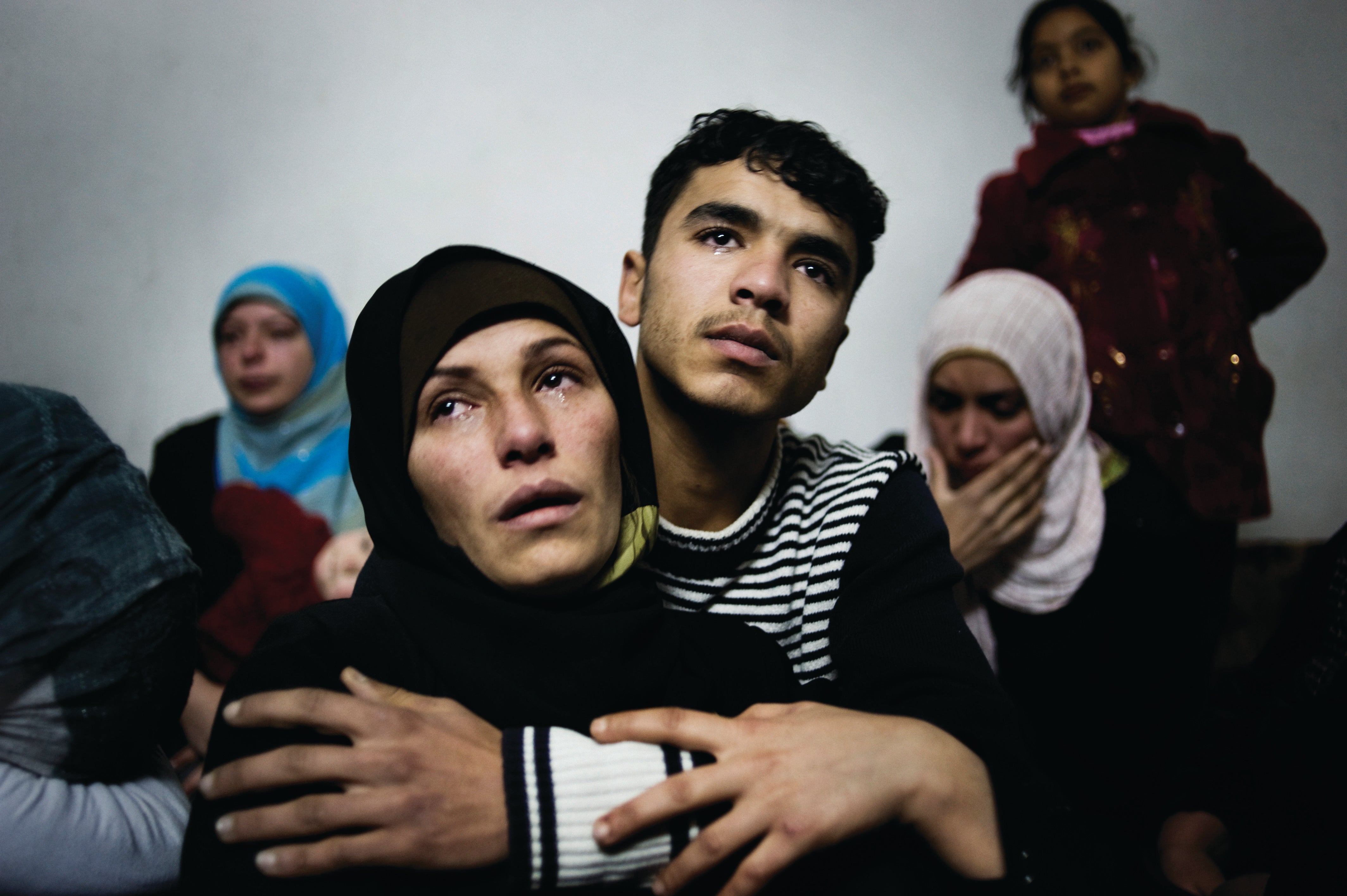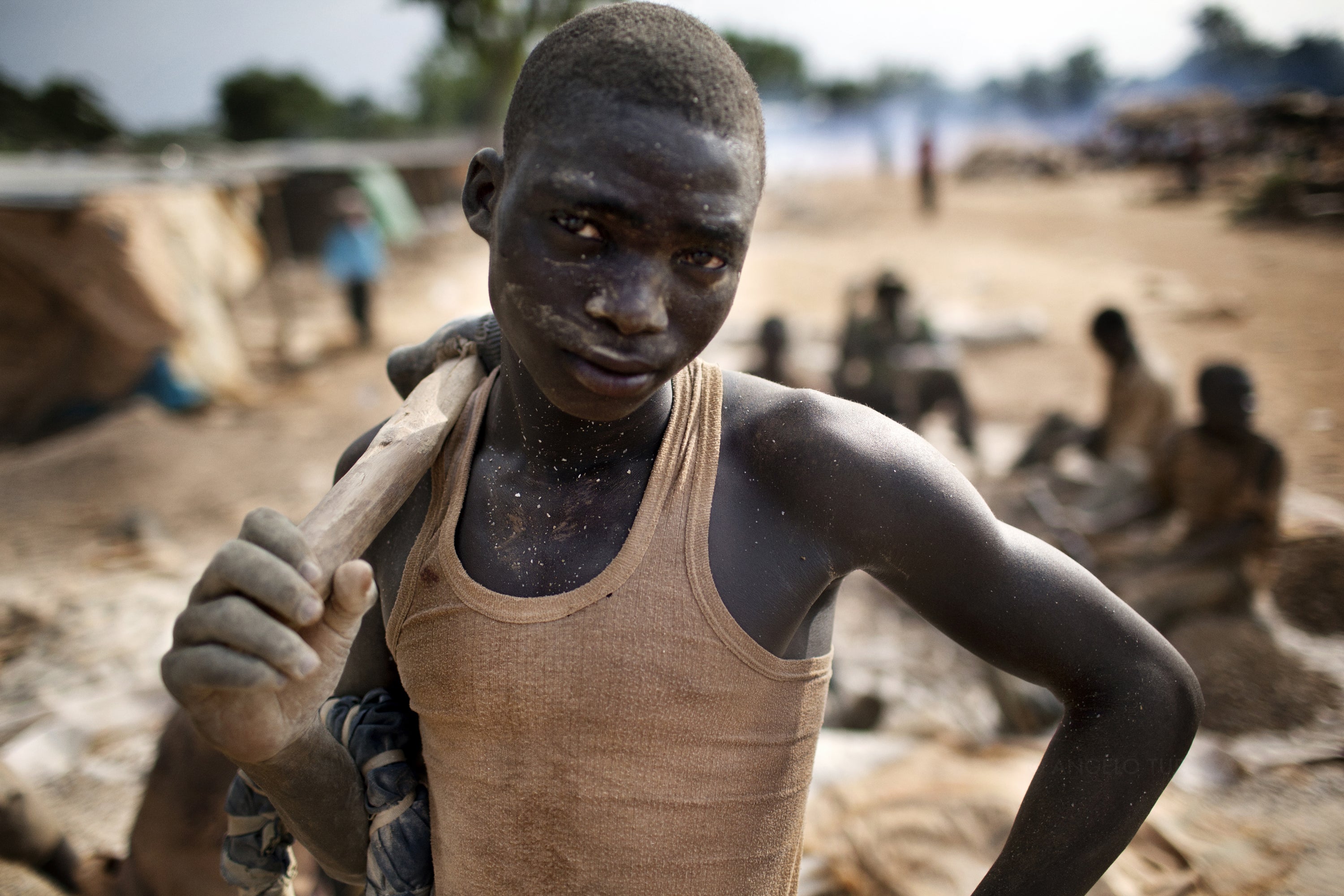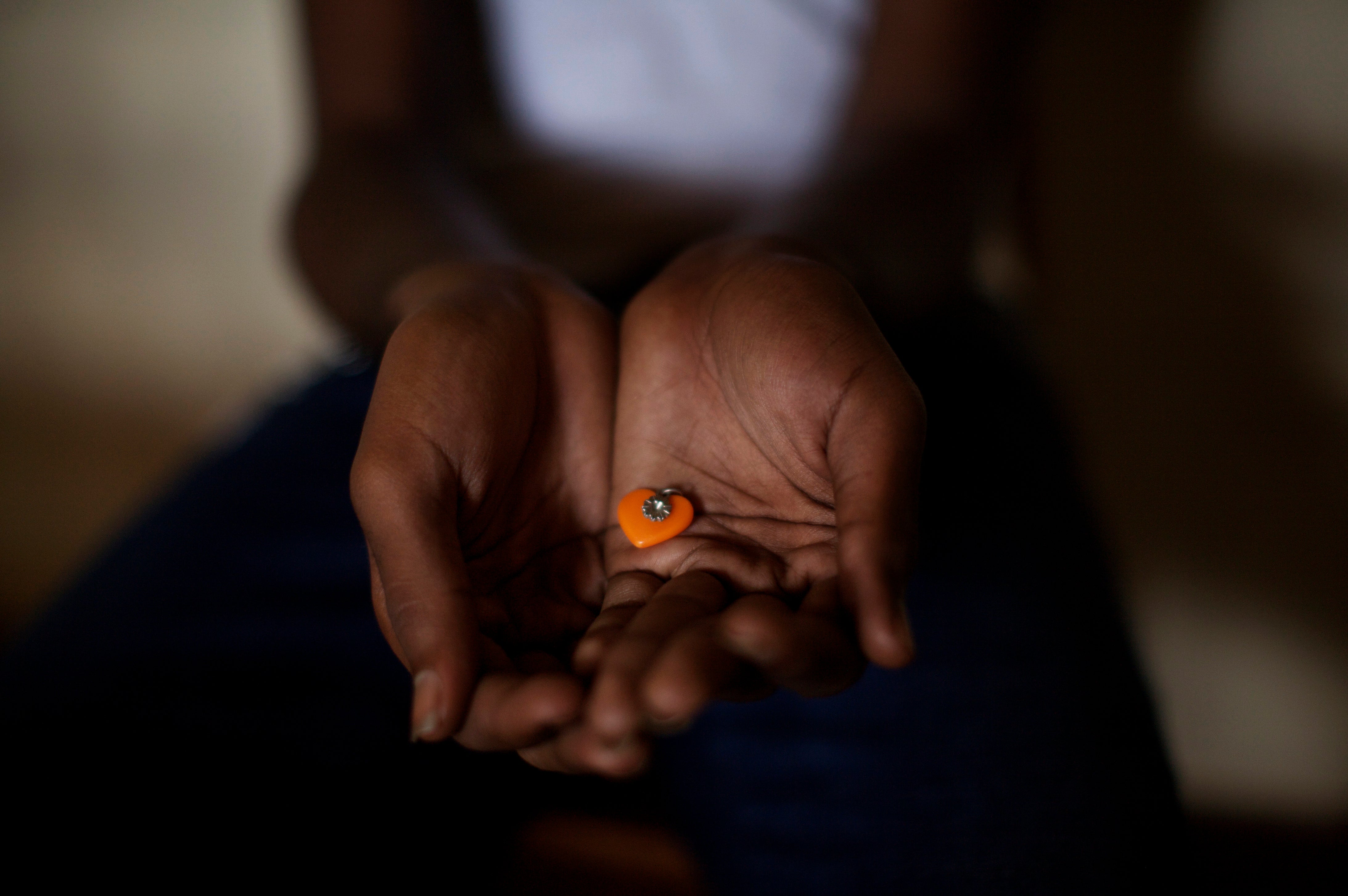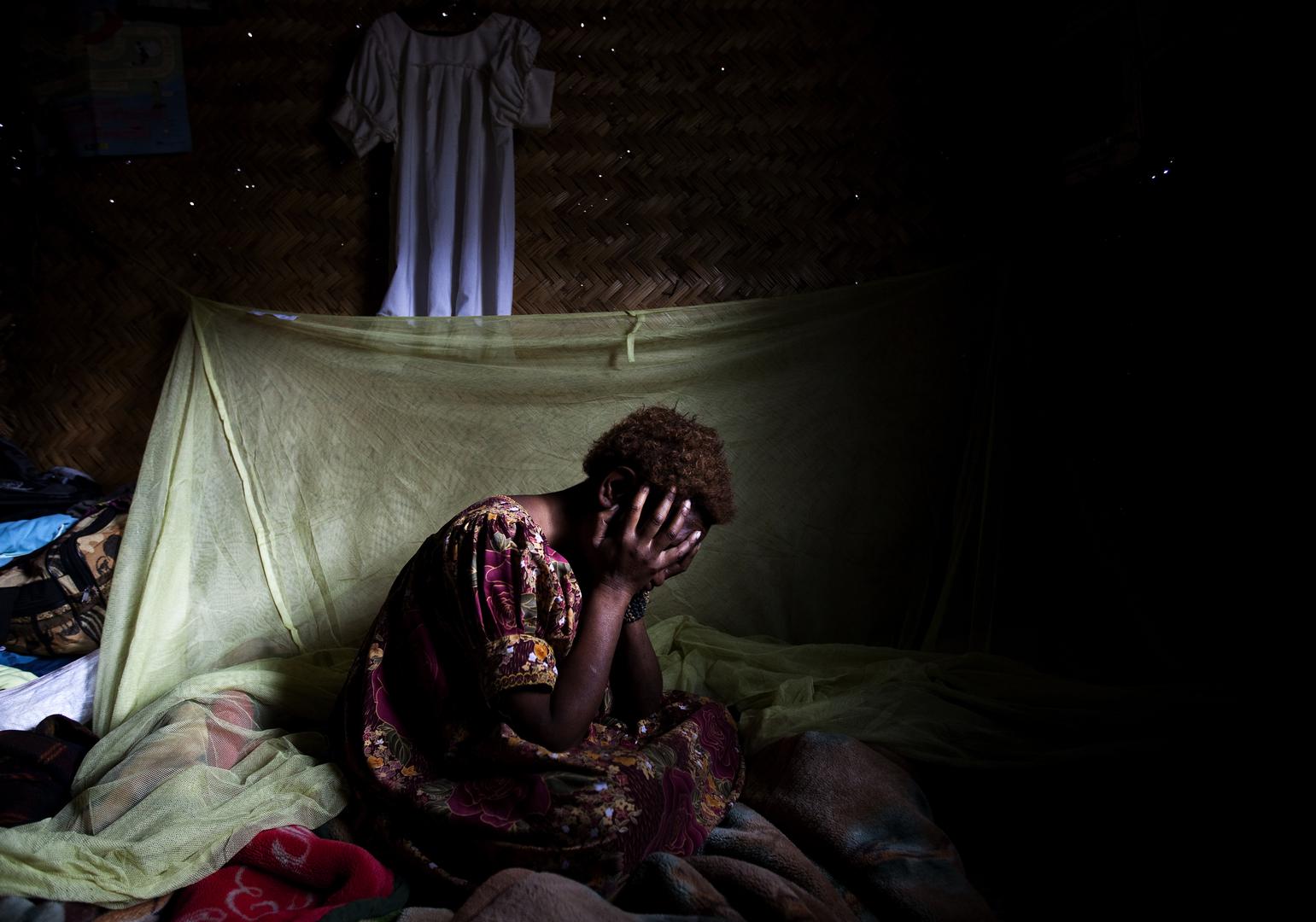Somalia’s long-running armed conflict continues to leave civilians dead, wounded, and displaced in large numbers. Although the Islamist armed group al-Shabaab lost ground in 2012, abandoning control of key towns such as Beletweyne, Baidoa, and the strategic port city of Kismayo, it continues to carry out attacks and targeted killings, including in the capital, Mogadishu.
Both al-Shabaab and the forces arrayed against it—a combination of Somali government security forces, troops with the African Union Mission in Somalia (AMISOM), Ethiopian government forces, and allied militias—committed abuses, including indiscriminate attacks harming civilians and arbitrary arrests and detentions. In areas under its control, al-Shabaab administered arbitrary justice and imposed harsh restrictions on basic rights. The transitional Somali government largely failed to protect the basic rights of the population in areas under its control; its forces and allied militia committed serious abuses against civilians.
In 2012, the situation in Mogadishu improved somewhat, with less open armed conflict. The mandate of the transitional government of Somalia ended on August 20 with the inauguration of a new administration with a new president, prime minister, and speaker of parliament. However, improving security remains a serious challenge for the new Somali National Government, highlighted by the increase in targeted killings of journalists and infighting between government forces and militias.
Abuses in Government Controlled Areas
Targeted killings of civilians, notably journalists, increased in areas controlled by the Somali authorities. Fifteen journalists were killed in 2012, which the Transitional Federal Government (TFG) failed to investigate. TFG forces and allied militias committed a range of abuses against internally displaced persons (IDPs) in Mogadishu, including rape, looting of food aid from IDP camps, and arbitrary arrests and detentions.
Civilians continue to be killed and wounded by crossfire, particularly during infighting between TFG forces over control of roadblocks, and by improvised explosive devices and grenade attacks primarily by al-Shabaab fighters. Al-Shabaab carried out several high-profile suicide attacks in Mogadishu including one on September 20 that killed at least 18 people, including three journalists. According to the World Health Organization (WHO), between January and late September, four hospitals in Mogadishu treated 5,219 casualties, with 118 dying from weapon-related injuries.
Government-affiliated forces and allied militias committed targeted killings and summary executions in towns recently vacated by al-Shabaab, and arbitrarily detained civilians, particularly men, during security operations. Between mid-January and mid-March in Beletweyne, the Shabelle Valley State (SVS) forces that are allied to the TFG and other militias committed at least seven summary executions. In late May, TFG forces including the National Security Agency (NSA) arbitrarily arrested and detained hundreds of men and boys following the takeover of Afgooye.
Civilians were killed and wounded as a result of indiscriminate fire by TFG forces and allied militias. On March 21, following a hand grenade attack on TFG-allied militia, the militia responded by opening fire on civilians in Baidoa, killing at least six.
The TFG military court continued to sentence to death and execute TFG personnel; at least six executions were carried out in 2012.
Abuses in Area Controlled by al-Shabaab
Al-Shabaab committed serious abuses such as targeted killings, beheadings, and executions, and forcibly recruited adults and children in areas under its control. On July 22, 2012, in the coastal town of Merka, al-Shabaab publicly executed three men it accused of being Western spies. Al-Shabaab continued to apply an extreme form of Islamic law in areas under its control, restricting the movement of people in need of humanitarian assistance or seeking to flee fighting in Kismayo.
Recruitment of Children and Other Abuses
All of the Somali parties to the conflict have continued to commit serious abuses against children, including recruiting children into their forces. Al-Shabaab has targeted children for recruitment, forced marriage, and rape, and has attacked teachers and schools.
In July 2012, the TFG signed a plan of action against child recruitment; yet the same month, 15 children were identified among a group of new recruits sent to a European Union-funded training in Uganda. The government has also detained children formerly associated with al-Shabaab, and used them as informants.
Abuses by Foreign Forces
Foreign forces have committed grave abuses in south-central Somalia, including indiscriminate shelling. Since October 2011, Kenyan air and naval forces have indiscriminately bombed and shelled populated areas, killing and wounding civilians and livestock. On August 11, a naval strike on Kismayo resulted in the deaths of at least three civilians, including two boys.
Ethiopian forces arbitrarily arrested, detained, and mistreated persons in their custody, notably in Beletweyne and Baidoa.
Restrictions on Humanitarian Assistance
In February 2012, the UN declared that the famine in Somalia was over, but stressed that at least two million people were still in need of emergency humanitarian assistance. Humanitarian access remains restricted due to ongoing conflict, insecurity, restrictions imposed by parties to the conflict, and diversion of aid.
Al-Shabaab maintains restrictions on humanitarian assistance and prohibits more than 16 humanitarian organizations, including the UN’s Children Fund (UNICEF) and Action Contre la Faim (ACF), from working in areas under its control. On October 8, 2012, al-Shabaab banned one of the last remaining international aid organizations, Islamic Relief, from working in areas under its control.
In towns recently vacated by al-Shabaab, insecurity, including infighting between TFG-allied forces, has limited access by aid agencies. Targeted attacks on humanitarian workers persist throughout the country. On August 27, 2012, a Somali staff member working with the UN Food and Agriculture Organization (FAO) was killed in Merka.
The diversion of humanitarian aid within Mogadishu by government forces, allied militia, officials and others, and insecurity at food distribution sites have significantly limited the access that displaced persons have to assistance.
Somaliland
The Somaliland government frequently and arbitrarily arrested and detained journalists—mainly those reporting on sensitive political issues such as the self-proclaimed Khatumo State—and clamped down on opposition protests. In April 2012, the government responded to a series of protests that opposition party members organized after being disqualified from local elections by temporarily arresting and detaining supporters. On March 8, 2012, the police also arbitrarily detained 71 people, including children, from Las Anod for peacefully protesting in support of the Khatumo State. Due process violations, including lengthy remand detention and the detention of children, remain a concern. On May 17, 2012, the military court sentenced 17 civilians to death.
On at least two occasions, the Somaliland authorities deported large numbers of Ethiopians, including refugees and asylum seekers. On August 31, Somaliland forcibly sent up to 100 Ethiopians, mostly women and children, back to Ethiopia, including refugees and asylum-seekers. This followed police raids on August 30 and 31, 2012, on an informal settlement in Hargeisa. Police fired live ammunition during the raids, wounding at least six Ethiopians, and then arrested and detained 56 Ethiopians.
Key International Actors
The TFG’s international partners, including the United States, United Kingdom, EU, and Turkey, have sought to build the capacity of Somalia’s weak governmental institutions and some regional administrations. The main focus of foreign partners and neighboring countries in 2012 was on implementing the roadmap developed to guide the execution of priority transitional tasks, including the adoption of a constitution and parliamentary reform, before the end of the transitional period.
The other focus has been on military support to AMISOM and the TFG forces, notably by the US and the EU. The US acknowledged for the first time in 2012 that it had authorized aerial drone strikes and special forces’ operations against al-Shabaab inside Somalia. The UK deployed a military liaison unit to Mogadishu.
On February 22, 2012, the UN Security Council authorized the African Union, with inadequate provisions on accountability, to increase the number of peacekeepers deployed in Somalia from 12,000 to 17,731.
In addition to their large military presence in Somalia, Kenya, and Ethiopia continue to train and offer military support to TFG-affiliated militia. They have a particular interest in the administrations in control of the areas that border their countries: Lower Juba and Gedo, including Kismayo.
The UN is undertaking a review process to examine its presence in the country and improve coordination in Somalia. The strengthening of UN human rights mechanisms will be crucial to the review’s success.
While improving accountability at the national level is currently on the international agenda, much needs to be done to ensure that this renewed commitment leads to concrete improvements on the ground. Given the gravity of the crimes committed in Somalia, accountability at the international level, notably through establishing a UN commission of inquiry—or a comparable, appropriate mechanism—is critical to document serious crimes and recommend appropriate measures.




